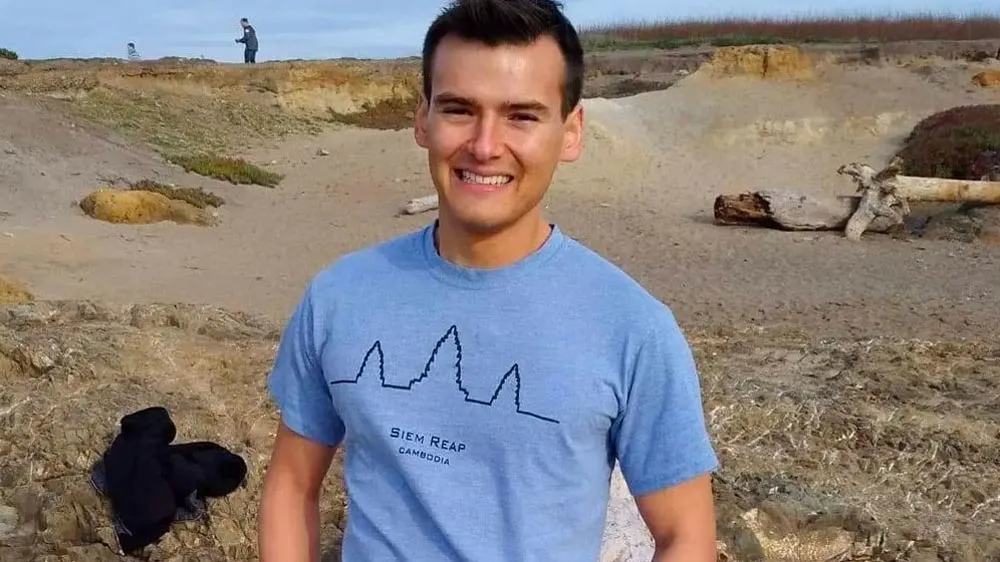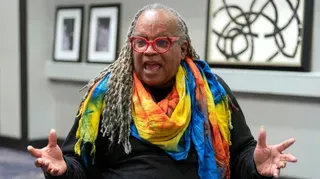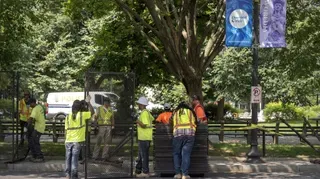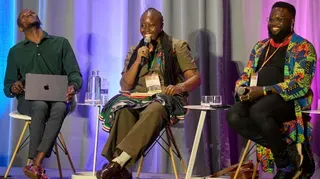March 6, 2013
Wedding Magazine Says 'I Don't' to Photographer's Same-Sex Ad
Antoinette Weil READ TIME: 5 MIN.
When an Atlanta-based wedding photographer recently tried to purchase her first full-page ad in a national bridal magazine, she was shocked and dismayed to discover that the publication nixed her proposed photo of two brides. The magazine eventually agreed to publish her ad, but the situation sparked a firestorm of controversy.
And there is no wonder why. Marriage Equality is gaining momentum in this country. The president is on our side, the Supreme Court is willing to hear arguments and rule on the constitutionality of DOMA and Prop 8, voters in more states have enacted marriage equality into law, and a number of recent polls show public opinion shifting largely in favor of legal same-sex marriage. This means the world to the couples that have been waiting for the stamp of approval and to undergo the ultimate commitment. But it may also mean a lot to many business professionals, gay, straight or indifferent.
"This is an emerging market, the first emerging market that's opening in the wedding industry for decades," said Bernadette Coveney Smith, leading expert on same-sex weddings and founder and president of 14 Stories, a gay wedding planning firm.
Research reports find overwhelmingly that state economies are positively impacted as a direct result of the legalization of same-sex marriage. And with the doors open to a whole new market eager for services, wedding-related businesses, especially in marriage equality states, have been reaping the benefits.
This potential business boost is what makes the recent controversy so startling.
Anne Almasy, an Atlanta-based photographer who has been shooting weddings for ten years, purchased a full page of ad space from the bridal magazine "Weddings Unveiled." However, when the editors saw the photo of two loving brides that Almasy selected for the ad, the deal was a no-go.
"Is there possibly another photograph you'd like to use in your ad? We just don't feel comfortable publishing an ad featuring a same-sex couple. These aren't our personal beliefs, of course, but, you know..." read the magazine's response, according to Almasy.
The editors asked Almasy if she had a different photo she would like to submit, noting that the request was not based on their personal beliefs, but that they nonetheless felt uncomfortable publishing an ad featuring a same-sex couple.
This outraged many, but what happened next is the interesting part.
Almasy originally conceded that they were free to publish or not publish material as they saw fit, but when the matter continued to weigh on her heart, she spoke up, writing a letter to the company expressing her dismay at their decision.
"Weddings Unveiled" extended, on their blog, a public apology and offered to run the ad:
"We knew that it was possible that people would be offended if we published the ad and we knew that it was possible that people would be offended if we did not. We are so sorry that we acted out of fear and uncertainty. We had never been faced with such a decision and we should have acted with our hearts," they wrote.
Almasy wholeheartedly accepted the publishers' apology and agreed to advertise with them, stating that the apology was sincere and that their change of heart should be honored. But the public response to "Weddings Unveiled" following this PR nightmare has been mixed. Many stand beside them and commend the publishers for their courage in admitting they were wrong and for correcting their mistake. On the other side of the fence, however, reviews have ranged from skeptical to downright angry.
"It never occurred to me that they would turn down the ad," said Almasy of the publishers of WU. "I never wanted to hurt them and I hate that it can go in the direction of negativity and ugly comments on the Internet."
Is Refusing LGBT Business a Salable Market Strategy?
At EDGE, we have a clear agenda when it comes to civil rights and social justice. But in the business arena, this choice by "Weddings Unveiled" seems somewhat cloudy. With gay marriage at the forefront of today's news, and with the emergence of this ready-to-spend market, is cutting the gays out good business practice?
"There is a lot of money to be made," said Almasy, of adding same-sex couples to the wedding industry. "Anyone who doesn't recognize the financial value of adding all these people to business is just sticking their head in the sand."
Indeed the addition of legalized same-sex marriage has proved to be quite fruitful for local businesses in states like New York, which saw $259 million generated from same-sex weddings in the first year. What many have called the "gay wedding windfall" benefits hotels, caterers, photographers, event planners and just about everyone else in the industry.
Still, Smith identifies that, in some places more than in others, there is real risk for a wedding publication embracing gay marriage. In the South, where "Weddings Unveiled" and the majority of its clients are based, there is no legal marriage equality. And even though upward of 60 percent of millennials support same-sex marriage, said Smith, their parents, who are often very involved in the wedding planning process, may not.
"Every week it happens that a same-sex couple is discriminated against," said Smith, citing incidents like the Oregon bakery that refused to provide a lesbian couple with a wedding cake, or the trolley company in Maryland that suspended all wedding services, rather than allow same-sex couples to enlist them. "Discrimination and heterosexism are prevalent in the wedding industry."
Almasy rejected the notion that all Southerners are homophobic, calling it ridiculous.
"I am based in Atlanta, 90 percent of my work is in Atlanta, and I have gay clients," Almasy stressed. "I think that for every person alienated by running this ad, there would be 100 alienated by the refusal to run it."
The alienation that Almasy spoke of and the reaction to this controversy can be seen all over the web. But the real test will take place in the first week of April, when the full-page ad will debut in the Spring edition of "Weddings Unveiled."
While Smith said that because of the issues same-sex couples are faced with, from coming out to vendors to choosing who will walk down the aisle first to filling out forms designated "bride" and "groom," the gay wedding planner must be an advocate, a supporter and a good listener. But, she contended, what it really comes down to is budget, style and personality fit.
As Almasy, a self-described non-industry person put it, "I don't know what the rest of the industry is doing, but I think the best thing that can happen is existing vendors embracing diversity."







